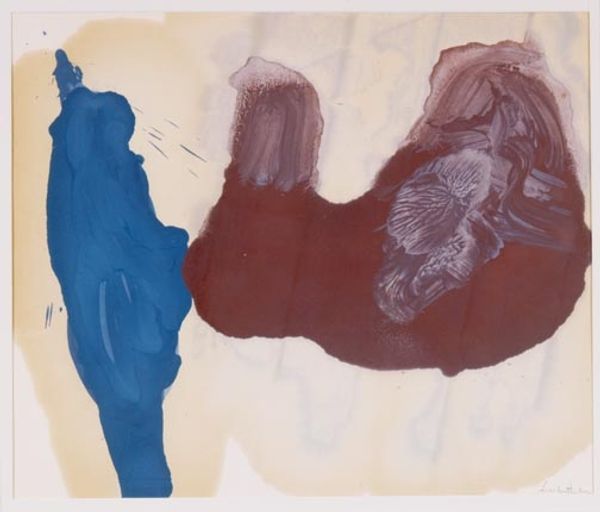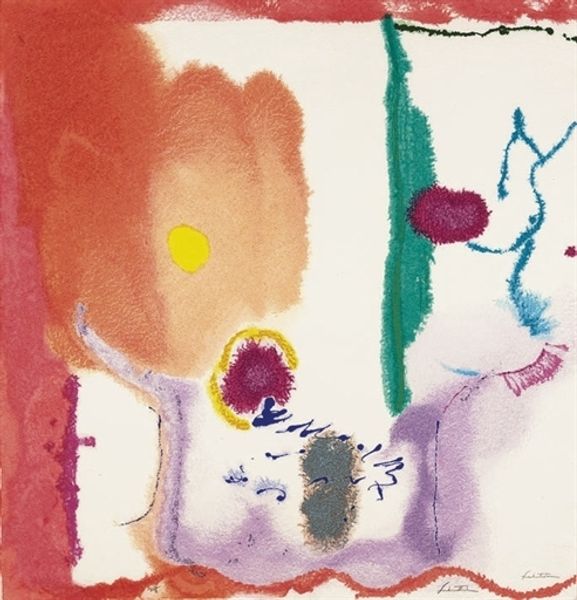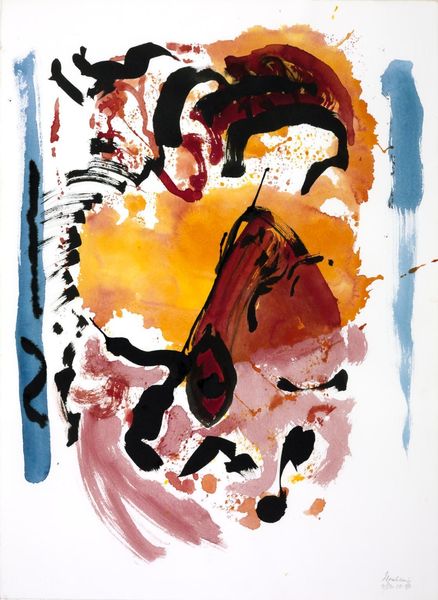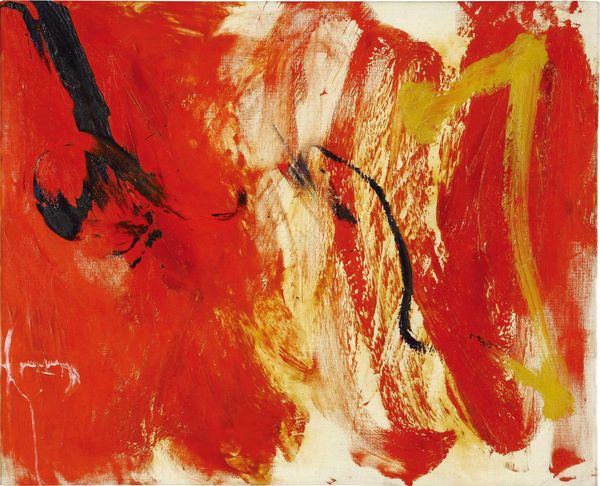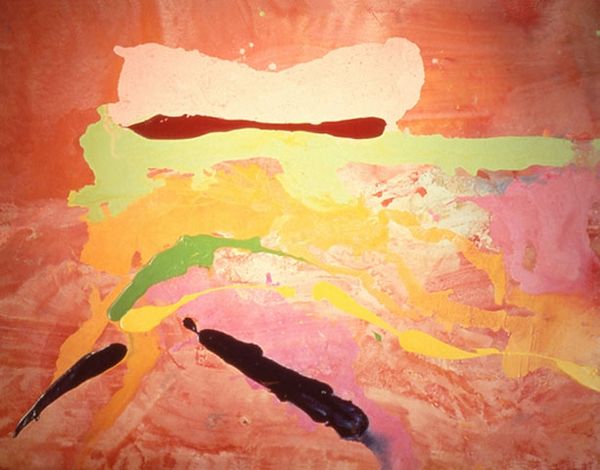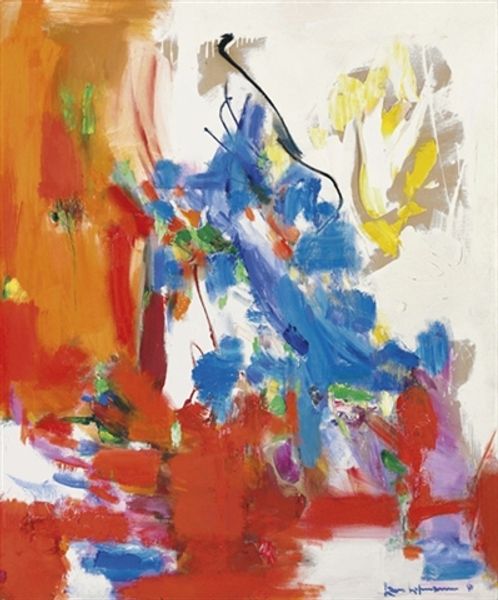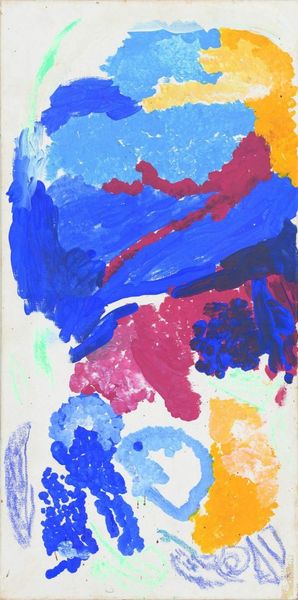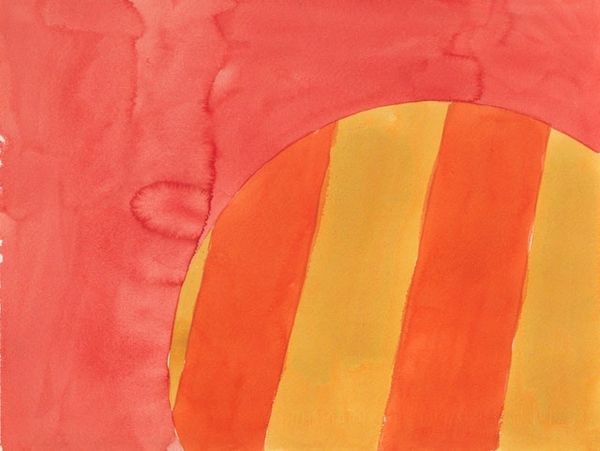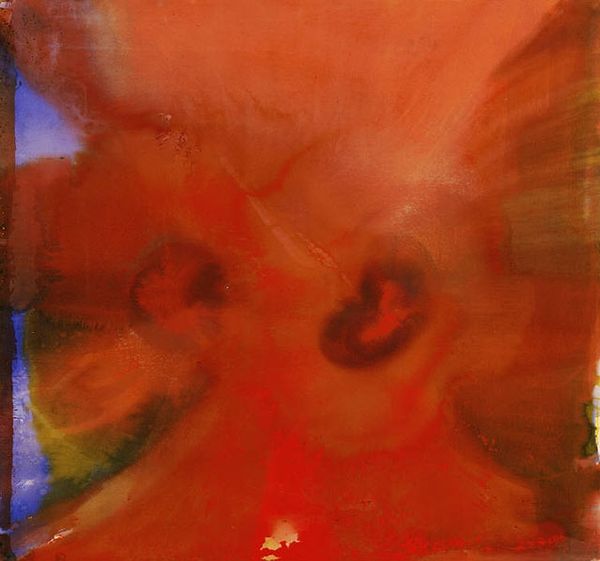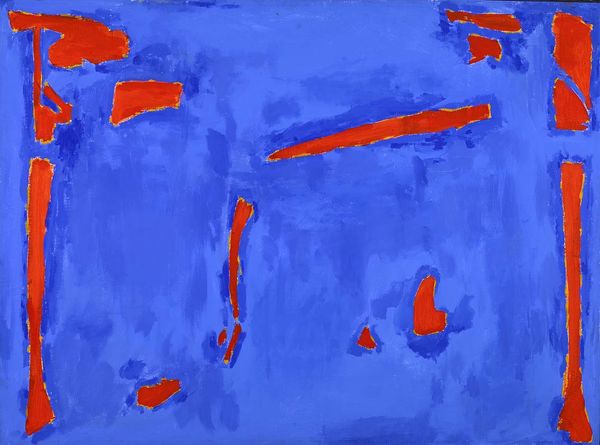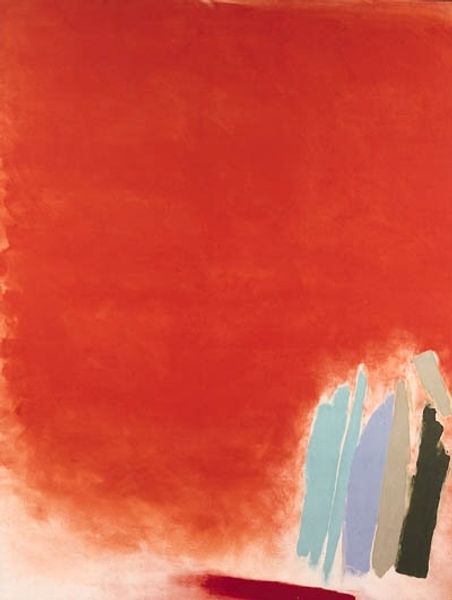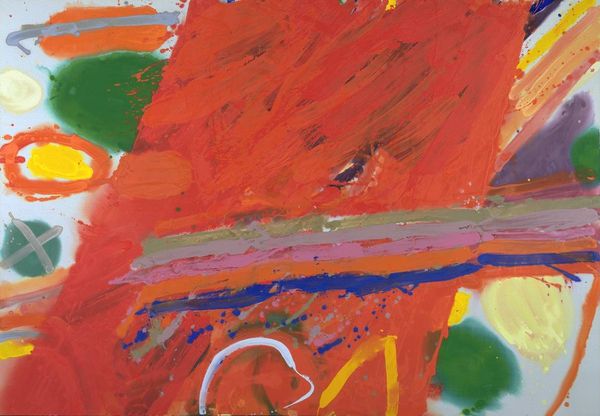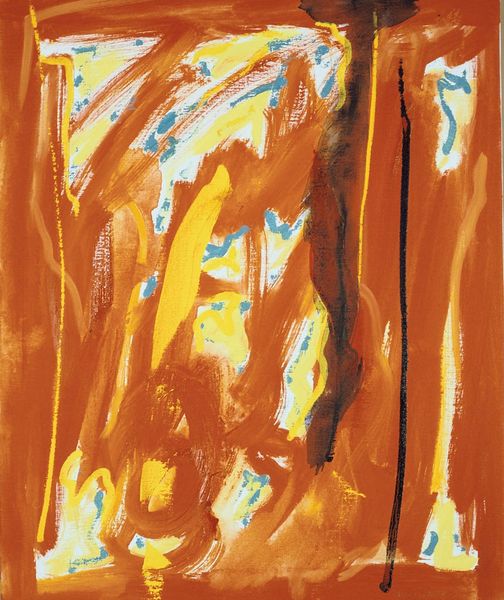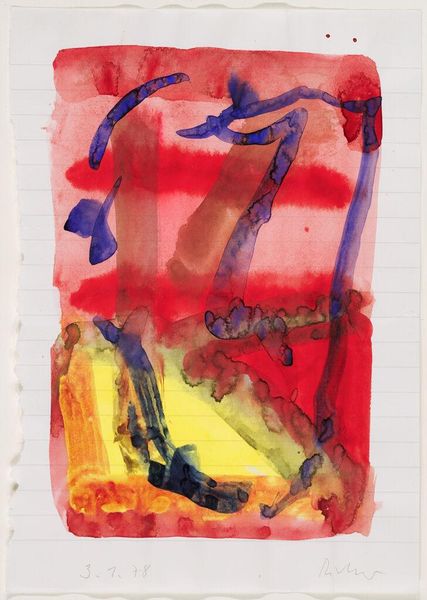
painting, watercolor
#
abstract-expressionism
#
water colours
#
painting
#
colour-field-painting
#
watercolor
#
abstraction
#
watercolour bleed
#
watercolour illustration
#
modernism
#
watercolor
Dimensions: 50.9 x 61 cm
Copyright: Helen Frankenthaler,Fair Use
Curator: This is Helen Frankenthaler’s "Summerscene, Provincetown" created in 1961, an exquisite example of her soak-stain technique in watercolor. It looks deceptively simple. Editor: My immediate impression is of lightness. A series of buoyant colour stains on unprimed canvas – cheerful, uncomplicated, a bit fleeting even. Curator: The choice of materials and method speaks to a rebellion against traditional painting practices, especially the application of layering. Think of it: watercolour allows for that immediate interaction with the canvas that Frankenthaler exploited beautifully. Editor: Precisely. Consider the Provincetown setting itself: an artist colony central to the development of American art and very conscious of the socio-political mood post World War II. Her simplified forms suggest an attempt to reconcile art with everyday life, rejecting academic conventions. It challenges the dominance of the New York art scene and opens dialogue beyond the canon. Curator: Frankenthaler's process was fascinating; pouring thinned paint onto unprimed canvas, allowing the colours to bleed and merge. It was, in a way, surrendering control. But that element of chance produced really remarkable results – the watercolour bleed effect you get especially there near the base! It looks totally intentional! Editor: That surrendering isn't complete, though. This piece represents the influence of Abstract Expressionism shifting into Color Field Painting. We witness not just a method, but a mindful curation within those color choices and applications. They serve to evoke emotions linked with the subject - like calmness in water for instance. These paintings gained popularity with galleries as they felt different and accessible after such turbulent decades preceding them; an avenue to process, if you like. Curator: Absolutely! And don't forget the scale. This isn't a massive canvas; its intimacy encourages closer inspection, demanding attention to each brushstroke and saturation level and so it reveals Frankenthaler’s labor. This demands more work on the audience part in observing it from close range - which ultimately enhances one's understanding! Editor: Seeing “Summerscene” in the context of its time and place brings such fascinating insights. It reminds us art is bound in discourse with historical, social, and production contexts. Curator: For me, focusing on the production means offers an entry point into the intentions that ultimately bring depth in its visual language – from rebellion of layering down choosing lighter tones here…
Comments
No comments
Be the first to comment and join the conversation on the ultimate creative platform.
